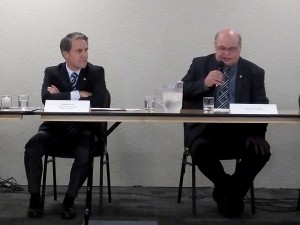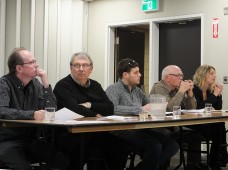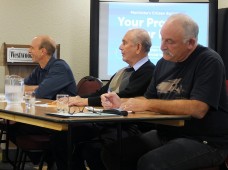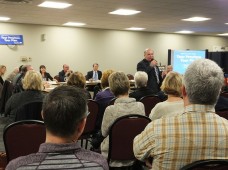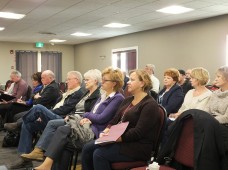On Friday, October 11, 2016 Finance Minister Cameron Friesen was in Swan River to host a public, pre-budget consultation from 5pm to 7pm at the Westwood Inn.
Local MLA Rick Wowchuk acted as the moderator for the evening.
Click any picture for a larger version.
Pre-consultation meetings are taking place in several communities with a focus on themes of efficiency, opportunities for growth and northern economic development. “The purpose of this exercise is that the new government wants to listen, to hear from Manitobans when it comes to budget 2017.” said Friesen.
Local presentations were made by the Town of Swan River, Swan Valley Chamber of Commerce, Swan Valley School Division, University College of the North, Communities that Care, Focus on Employment, Association for Community Living and Benito Premium Meats.
A common theme among many of the presenters was the importance of adequate funding for education, including early learning, adult training opportunities, certification of workers and training programs that benefit youth and families. Many requests were made regarding the continuation of funding and partnerships to provide post-secondary and trades training in northern communities. In response, Friesen commented, “We like where we are seeing vocation involved, sector lead training happening with institutions … and reflecting the needs of employers.”
Following the presentation, time was allocated for other attendees to provide comments and ask questions.
Several individuals raised the issue of fiscal responsibility and the importance of making smart choices when spending other people’s money. “We are working hard to inject common sense criteria into decision making across government.” said Friesen, in agreement.
The government has launched a citizen budget tool on the website, www.YourProvinceYourPlan.ca, that allows individuals to build their own provincial budget. The tool uses responses to a series of questions about provincial budget preferences (on topics ranging from health care and red tape to infrastructure and innovation) to build a budget based on the individual’s priorities.

